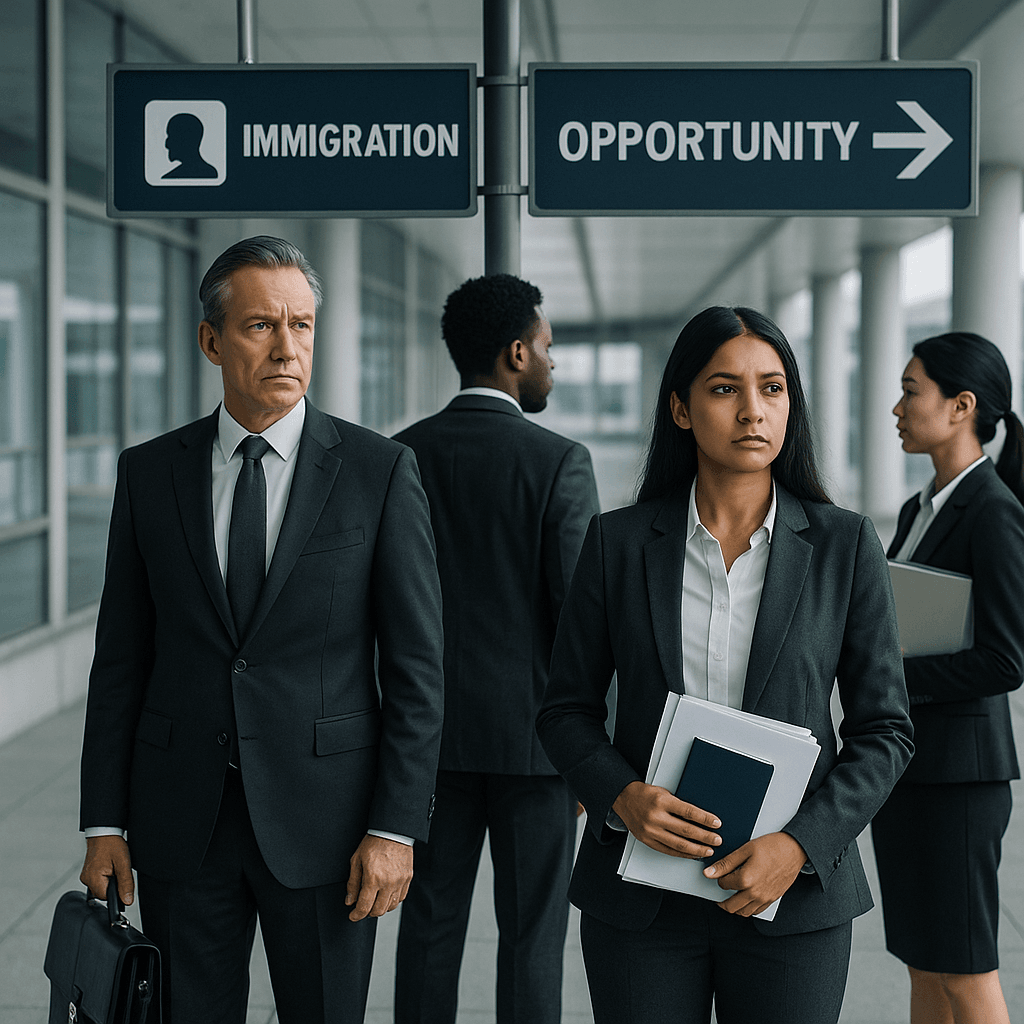Venture capital heavyweight Michael Moritz just delivered a blistering takedown of Trump's new $100,000 H-1B visa fee, comparing the White House to Tony Soprano's operation in a scathing Financial Times op-ed. The former Sequoia Capital partner's fierce opposition signals growing industry pushback against a policy that could reshape how tech companies hire global talent.
The gloves are off in the H-1B visa fight. Michael Moritz, the legendary investor who helped build Google, Apple, and countless other tech giants during his tenure at Sequoia Capital, just unleashed a withering attack on the Trump administration's latest immigration crackdown.
The billionaire VC isn't mincing words about the White House's announcement last Friday of a $100,000 annual fee on H-1B visas. In his Financial Times op-ed, Moritz draws a direct comparison between the administration and Tony Soprano's fictional crime operation, calling the policy another 'brutish extortion scheme.'
The timing couldn't be more pointed. Just as tech companies are scrambling to understand the implications of this massive fee increase, one of the industry's most respected voices is publicly shredding the policy's logic. The H-1B program currently allows 85,000 skilled foreign workers to enter the U.S. annually, with tech companies being the primary beneficiaries.
Moritz's critique cuts to the heart of what he sees as a fundamental misunderstanding by the Trump administration. 'Engineers with undergraduate degrees from the better eastern Europe, Turkish and Indian universities are every bit as well qualified as their American counterparts,' he writes in the op-ed. The veteran investor argues that companies hire foreign workers to fill genuine skill gaps and labor shortages, not to replace Americans or cut costs.
The policy's potential backfire effect is where Moritz sees the real danger. Rather than keeping jobs in America, he warns, the prohibitive fee will push companies to relocate entire operations to places like Istanbul, Warsaw, or Bangalore. It's a prediction that carries weight coming from someone who's watched global talent flows for decades and helped channel them into American success stories.
Moritz points to some pretty compelling examples of H-1B program graduates who've shaped the modern tech landscape. Microsoft CEO Satya Nadella and CEO Sundar Pichai both came through the program, as did and CEO Elon Musk and Instagram co-founder Mike Krieger. These aren't just successful immigrants - they're leaders who've created hundreds of thousands of American jobs.












